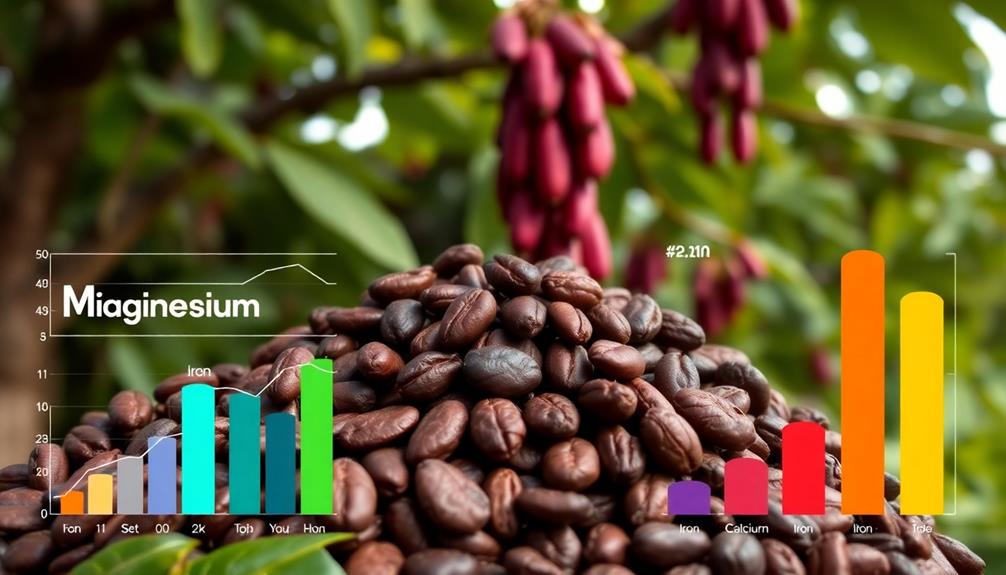Picture yourself at a luxurious feast, with tables decorated with colorful fruits and vegetables, and the air scented with the enticing smell of freshly cooked meals. As you sink your teeth into a crunchy, juicy apple, your taste buds rejoice. However, there are individuals who are unable to experience this moment of gastronomic joy. They are the ones who have difficulty eating raw food.
Raw food, a culinary trend that has gained popularity in recent years, is not suitable for everyone. While some people thrive on a raw food diet, others face numerous challenges when it comes to consuming uncooked foods. These challenges range from food allergies and digestive disorders to oral and throat sensitivities.
Additionally, concerns about bacterial contamination and difficulties in chewing and swallowing further limit their ability to enjoy raw food.
In this article, we will delve into the reasons why some individuals can’t eat raw food. From medical conditions to personal preferences, we will explore the various factors that contribute to these restrictions. So, if you’ve ever wondered why some people can’t indulge in the raw food craze, keep reading to uncover the fascinating reasons behind their dietary limitations.
Key Takeaways
- Food allergies and sensitivities can prevent individuals from being able to eat raw food.
- Digestive disorders and enzyme deficiencies can affect the ability to digest raw food properly.
- Sensory issues related to the texture of raw food can make it difficult for some individuals to consume.
- Certain medical conditions and compromised immune systems may require individuals to avoid raw food.
Understanding Food Allergies and Sensitivities
Understanding food allergies and sensitivities can be a real eye-opener, making you realize just how much your body can betray you.
There are many misconceptions surrounding food allergies, which can lead to misunderstandings and unnecessary dietary restrictions. Contrary to popular belief, food allergies are not the same as food intolerances. A food allergy is an immune system reaction to a specific food, while a food intolerance is a digestive system response.
One common misconception is that food allergies only occur in childhood and can be outgrown. However, food allergies can develop at any age and may persist throughout a person’s life. Another misconception is that all food allergies are severe and life-threatening. While some allergies can be life-threatening, others may cause mild symptoms such as hives or an upset stomach.
It is important to understand that there is no cure for food allergies. The only way to manage a food allergy is to avoid the allergen completely. This means carefully reading food labels, asking about ingredients at restaurants, and being prepared for cross-contamination. It is also essential to have an emergency action plan in case of accidental exposure to the allergen.
By understanding the true nature of food allergies and dispelling common misconceptions, we can better support those who have dietary restrictions and ensure their safety and well-being.
Digestive Disorders and Raw Food
Due to certain digestive disorders, consuming uncooked ingredients can pose significant challenges. These disorders can affect the body’s ability to properly break down and absorb nutrients from raw food.
One example of a digestive disorder that can impact nutrient absorption is celiac disease. People with celiac disease have an immune reaction to gluten, a protein found in wheat, barley, and rye. This immune reaction damages the lining of the small intestine, making it difficult for the body to absorb nutrients from any type of food, including raw ingredients.
Another digestive disorder that can affect nutrient absorption is Crohn’s disease. Crohn’s disease is a chronic inflammatory condition that primarily affects the digestive tract. It can cause inflammation and ulcers in the intestines, which can lead to malabsorption of nutrients. Raw food can be particularly challenging for individuals with Crohn’s disease because it can be harder to digest and may exacerbate symptoms.
In addition to digestive disorders, raw food can also impact weight management. Raw food diets, which consist primarily of uncooked fruits, vegetables, nuts, and seeds, have gained popularity in recent years. Proponents of these diets claim that they can help with weight loss and maintenance. However, there’s limited scientific evidence to support these claims. In fact, some studies suggest that raw food diets may not be as effective for weight management as other dietary approaches.
Individuals with certain digestive disorders may find it difficult to consume raw food due to challenges with nutrient absorption. Additionally, the impact of raw food on weight management is still a topic of debate, and further research is needed to fully understand its effects.
Oral and Throat Sensitivities
Oral and throat sensitivities can present challenges for individuals when consuming uncooked ingredients. These sensitivities can be caused by a variety of factors, such as allergies, inflammation, or underlying medical conditions. For some people, raw food can trigger allergic reactions or cause discomfort in the mouth and throat.
Oral sensitivities can manifest as itching, tingling, or swelling in the mouth. This can make it difficult to eat raw fruits and vegetables, as the texture and enzymes in these foods can exacerbate the sensitivity. Throat sensitivities, on the other hand, can cause a dry or scratchy feeling, making it uncomfortable to swallow raw food.
Individuals with oral and throat sensitivities may need to modify their diets to accommodate their condition. Cooking or steaming fruits and vegetables can help soften them, making them easier to consume. Blending or juicing can also be an alternative for those who struggle with raw food. It’s important for individuals with these sensitivities to work closely with a healthcare professional or nutritionist to ensure they’re getting the necessary nutrients from their diet while avoiding triggers that may cause discomfort.
Oral and throat sensitivities can pose challenges for individuals when consuming uncooked ingredients. By making modifications to their diet and working closely with healthcare professionals, individuals can still maintain a healthy and balanced diet while managing their sensitivities.
Bacterial Contamination and Food Safety Concerns
Bacterial contamination and food safety concerns can arise when you consume uncooked ingredients, as the lack of heat treatment increases the risk of harmful bacteria present in raw foods.
Raw foods, such as fruits, vegetables, and meats, can harbor bacteria like Salmonella, E. coli, and Campylobacter, which can cause foodborne illnesses.
When food is not cooked, these bacteria are not killed off, leading to a higher risk of infection.
Bacterial contamination can occur during various stages, including production, processing, transportation, and storage of raw foods.
Cross-contamination is another concern, where bacteria from raw foods can spread to cooked or ready-to-eat items, leading to illness if consumed.
To minimize the risk of bacterial contamination, it is essential to follow proper food handling and preparation practices.
This includes washing fruits and vegetables thoroughly, using separate cutting boards for raw and cooked foods, and cooking meats to the appropriate internal temperature.
Additionally, storing raw foods at the correct temperature and avoiding the consumption of expired or spoiled ingredients can help reduce the likelihood of foodborne illnesses.
Food safety regulations and guidelines are in place to ensure that food producers and suppliers maintain proper hygiene practices, reducing the risk of bacterial contamination.
By being aware of these concerns and taking necessary precautions, you can protect yourself and others from potential health risks associated with consuming raw foods.
Difficulty in Chewing and Swallowing Raw Food
Chewing and swallowing raw food can sometimes feel like trying to conquer a tough, unyielding challenge. For individuals who struggle with this, it’s not just a matter of preference, but a result of difficulties in swallowing and potential dental issues.
When it comes to difficulty in swallowing, raw food can present a unique set of challenges. The texture and consistency of uncooked fruits, vegetables, and meats can be tough and fibrous, making it harder to break them down into manageable pieces. This can lead to discomfort and even choking hazards.
Moreover, individuals with dental issues may find it especially challenging to chew and swallow raw food. Dental problems such as missing teeth, gum disease, or jaw pain can make it harder to properly chew food, resulting in larger and more difficult-to-swallow pieces.
To address these difficulties, it’s important for individuals who can’t eat raw food to explore alternative options. Cooking raw food can help soften its texture, making it easier to chew and swallow. Additionally, using blenders or food processors to create smoothies or purees can provide a nutritious alternative that’s easier to consume.
The difficulty in chewing and swallowing raw food can pose significant challenges for individuals with swallowing difficulties and dental issues. Exploring alternative cooking methods and food preparations can help ensure a safe and enjoyable eating experience.
Enzyme Deficiencies and Raw Food Digestion
Having enzyme deficiencies can make it challenging for your body to properly digest raw food. Enzymes are proteins that help break down the food we eat into smaller, more easily absorbed molecules. Without enough enzymes, the digestion process becomes inefficient, leading to discomfort and potential nutrient deficiencies.
One common enzyme deficiency that affects raw food digestion is lactase deficiency, which leads to lactose intolerance. Lactase is the enzyme that breaks down lactose, the sugar found in milk and dairy products. People with lactase deficiency experience symptoms like bloating, gas, and diarrhea when consuming raw dairy products.
Another enzyme deficiency is alpha-galactosidase deficiency, which causes difficulties in digesting certain carbohydrates found in foods like beans and legumes. This deficiency can lead to symptoms such as gas, bloating, and stomach pain when consuming raw or undercooked legumes.
In addition to specific enzyme deficiencies, some individuals may have a general intolerance to raw food. This intolerance can manifest as digestive discomfort, including bloating, gas, and diarrhea, even when there is no specific enzyme deficiency identified.
If you have an enzyme deficiency or experience raw food intolerance, it’s important to consult with a healthcare professional or registered dietitian. They can provide guidance on managing your condition, including dietary modifications and potentially enzyme supplements, to ensure you’re getting the necessary nutrients from your diet.
Nutritional Deficiencies and Raw Food Consumption
If you experience difficulties digesting raw food due to enzyme deficiencies, it’s important to be aware that there can be potential nutritional deficiencies associated with this limitation. While raw food is often praised for its high nutrient content, it’s crucial to understand that certain nutrients may not be as easily absorbed by those with enzyme deficiencies.
Nutritional deficiencies can arise when the body is unable to break down and absorb essential nutrients from raw food properly. For instance, individuals with lactase deficiency may struggle to digest raw dairy products, leading to inadequate calcium and vitamin D intake. Similarly, those with lipase deficiency may have difficulty digesting fats from raw nuts and seeds, resulting in a deficiency of essential fatty acids.
Furthermore, individuals with food allergies may also face challenges when consuming raw food. Common food allergens such as peanuts, tree nuts, and shellfish can be found in raw dishes, potentially triggering allergic reactions. It’s crucial for individuals with food allergies to be cautious when choosing raw food options and to consult with a healthcare professional for proper guidance.
To emphasize the potential consequences of nutritional deficiencies and food allergies, consider the following table:
| Nutrient | Deficiency Symptoms | Food Sources |
|---|---|---|
| Calcium | Weak bones, dental issues | Raw dairy, leafy greens |
| Vitamin D | Weakened immune system | Raw fish, egg yolks |
| Essential fatty acids | Dry skin, poor brain function | Raw nuts, seeds |
It’s important to address these nutritional deficiencies and food allergies to ensure a balanced and nourishing diet for individuals who can’t eat raw food due to enzyme deficiencies.
Sensory Issues and Raw Food Texture
One interesting statistic to note is that approximately 10% of individuals who consume a raw food diet report experiencing sensory issues related to the texture of the food. These sensory issues can impact their ability to enjoy and consume raw foods.
Sensory processing refers to how the brain receives and interprets information from the senses. For some individuals, the texture of raw food can be overwhelming and cause discomfort. This can lead to food aversions, where individuals actively avoid certain textures or types of food.
To better understand these sensory issues, here are four common experiences reported by individuals who have difficulties with raw food texture:
-
Crunchiness overload: Some individuals find the crunchiness of raw vegetables or fruits to be overwhelming, making it difficult for them to enjoy these foods.
-
Slippery sensation: The slippery texture of certain raw foods, like tomatoes or grapes, can be off-putting to some individuals, making it hard for them to consume these foods.
-
Fibrous struggle: The fibrous texture of certain raw foods, such as celery or pineapple, can be challenging for individuals with sensory issues to chew and swallow.
-
Sticky situation: Sticky textures, like those found in raw honey or peanut butter, can be unpleasant for individuals who struggle with sensory processing, making it hard for them to incorporate these foods into their diet.
Understanding these sensory issues can help individuals who can’t eat raw food find alternative ways to incorporate the necessary nutrients into their diet while still meeting their sensory needs.
Medical Conditions and Raw Food Restrictions
If you experience sensory issues and struggle with the texture of raw food, you’re not alone. Many individuals find raw food to be challenging to eat due to its crunchy or slimy texture. However, there are also people who can’t consume raw food due to medical conditions and food intolerances.
Certain medical conditions can make it difficult for individuals to tolerate raw food. For example, individuals with compromised immune systems, such as those undergoing chemotherapy or organ transplant recipients, are often advised to avoid raw food due to the risk of foodborne illnesses. This is because raw food can harbor harmful bacteria such as Salmonella and E. coli, which can cause serious infections in individuals with weakened immune systems.
In addition, individuals with certain digestive disorders, such as Crohn’s disease or irritable bowel syndrome, may also have difficulty digesting raw food. Raw fruits and vegetables can be tough for these individuals to break down, leading to discomfort and digestive symptoms.
Moreover, some individuals may have specific food intolerances that prevent them from consuming raw food. For example, individuals with lactose intolerance may have difficulty digesting raw dairy products, while those with fructose intolerance may struggle with raw fruits and honey.
While sensory issues can make it challenging to eat raw food, there are also medical conditions and food intolerances that restrict individuals from consuming raw food. It’s important to be aware of these restrictions and find alternative ways to meet your nutritional needs.
Personal Preferences and Cooking Preferences
When it comes to personal preferences and cooking preferences, it’s fascinating to explore the various ways individuals enjoy their meals. People have different tastes and cultural influences that shape their cooking techniques and choices. Some individuals simply prefer cooked food over raw food due to personal preference or taste. Cooking can enhance the flavors and textures of the ingredients, making the meal more enjoyable for them. Additionally, cultural influences play a significant role in people’s cooking preferences. Different cultures have unique cooking techniques that have been passed down through generations. These techniques often involve cooking ingredients to bring out their flavors and create traditional dishes. For example, in Japanese cuisine, raw fish is commonly enjoyed in sushi, but many other ingredients are cooked or grilled to create delicious dishes. Overall, personal preferences and cultural influences greatly impact how individuals choose to cook their food, whether it’s to enhance flavors or to follow traditional cooking methods.
| Cooking Technique | Cultural Influence | Example |
|---|---|---|
| Grilling | American | BBQ ribs |
| Stir-frying | Chinese | Kung Pao Chicken |
| Slow cooking | Mexican | Carnitas |
Frequently Asked Questions
Can raw food allergies or sensitivities be cured or managed with medication?
Unfortunately, there’s no magical pill to cure raw food allergies or sensitivities. While medications can help manage symptoms, they can’t eliminate the underlying issue.
Raw food allergies occur when the immune system mistakenly identifies certain proteins in raw food as harmful. Antihistamines can help alleviate symptoms like itching and swelling, but they won’t address the root cause.
The best approach is to avoid raw foods that trigger reactions and consult with a healthcare professional for personalized advice.
Are there any treatment options available for individuals with digestive disorders that prevent them from eating raw food?
There are several treatment options available for individuals with digestive disorders that prevent them from eating raw food. These options include dietary modifications, such as cooking or steaming food to make it easier to digest.
Managing raw food allergies can also involve the use of medication, such as antihistamines or corticosteroids, to reduce allergic reactions.
Additionally, working with a healthcare professional, such as a gastroenterologist or allergist, can help develop a personalized treatment plan based on the specific digestive disorder and individual needs.
How can oral and throat sensitivities affect an individual’s ability to consume raw food?
If you have oral and throat sensitivities, your ability to consume raw food may be affected. Oral sensitivities can cause discomfort, pain, or even allergic reactions when eating certain foods. Similarly, throat sensitivities can lead to difficulty swallowing, choking, or a sensation of something being stuck in your throat. These sensitivities can make it challenging to consume raw food, as the texture or consistency may trigger these symptoms.
It’s important to consult with a healthcare professional to determine the best options for your specific sensitivities.
What are the most common bacterial contaminations found in raw food and how can they be prevented?
To prevent bacterial contamination in raw food and reduce the health risks associated with it, proper handling and cooking techniques are crucial. The most common bacterial contaminations found in raw food include Salmonella, E. coli, and Campylobacter.
To prevent these contaminations, it’s important to wash hands and surfaces thoroughly, separate raw and cooked foods, cook food to safe temperatures, and store it properly. Following these practices can help ensure the safety of raw food consumption.
Are there any alternative methods for individuals with difficulty in chewing and swallowing raw food to still obtain necessary nutrients?
If you have difficulty chewing and swallowing raw food, there are alternative food options and nutritional supplements available to ensure you still obtain necessary nutrients. Cooked vegetables, pureed fruits, and soft-textured foods like yogurt or cottage cheese can be good alternatives.
Additionally, nutritional supplements such as protein shakes or meal replacement drinks can provide the necessary nutrients in an easily digestible form. It’s important to consult with a healthcare professional or registered dietitian to determine the best options for your specific needs.
Are There any Genetic Reasons Why Some People Can’t Eat Raw Food?
Some researchers believe that a genetic mutation affecting native american food consumption may be the reason why some people struggle with eating raw food. This mutation may have developed as a result of certain cultural practices and dietary habits, making raw food harder to digest for some individuals.
Are There Any Exceptions to People Who Can’t Eat Raw Food, Such as Those Who Have Successfully Tried a Raw Food Diet?
Yes, there are exceptions to people who can’t eat raw food, such as those who have successfully tried a raw food diet man. Some individuals may have digestive issues that prevent them from consuming raw foods, while others may simply prefer the taste and texture of cooked foods.
Conclusion
In conclusion, you may think that everyone can enjoy the crispness and freshness of raw food, but that’s simply not true. Some people, for various reasons, just can’t handle it.
From food allergies and digestive disorders to oral sensitivities and bacterial contamination concerns, there are a multitude of reasons why raw food may not be an option for some individuals.
So, next time you bite into that raw salad, remember that not everyone can join in on the raw food fun. It’s a world of cooked delights for them!

















